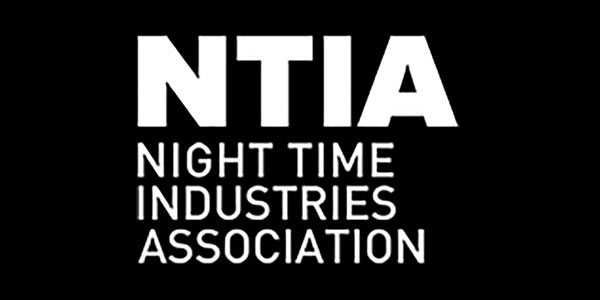The evening focused on how all of the creative industries – from theatres and museums to design agencies and digital media companies – are impacted collectively from nightlife. London’s recently appointed night czar then stepped up to highlight issues surrounding the night time economy. Amy Lamé (pictured below) started by asking this question: What can £66 billion buy you? It could buy you the LA Lakers, AC Milan, Chicago Cubs or Mukesh Ambini’s private home in Mumbai called “Antilia” and you’d still have £58 billion change left over. That figure of £66 billion is the amount Britain stands to lose after Brexit, and according to the NTIA it is the exact same figure the night time economy is worth to the UK.

London’s Mayor Sadiq Khan clearly recognises the importance of the night time economy and has welcomed government proposals to help protect grassroots music venues. The recent amendments made on the agent of change principle to the government’s planning bill is a huge win for these cultural spaces and certainly a step in the right direction. He also appointed London’s first ever Night Czar – Amy Lamé, who will work with City Hall and aim to “build bridges, not walls” between local councils, business owners and all other stakeholders involved in the night time economy.
Often associated with night life nationwide is drunken, disorderly and antisocial behaviour along with noise complaints (the latter is certainly the most popular in London). Lamé, on the other hand, was much more keen on highlighting all the positive points – and rightfully so. In the first nine months of 2016 London alone welcomed 14 million visitors, each of them adding to the diversity and rousing atmosphere created in the capital. Night workers in London provide £26 billion to the GDP and support 800,000 jobs by the night time economy. We need to make sure that people who work at night have the right to equal pay compared to those who don’t. Lamé also stated that she is working together with the Trade Union Congress on drafting a “Night Safety Charter” to encourage best practices. Since June 2016 mini cabs have been thriving and have greatly improved safety, while according to the transport police there have also only been a total of 67 arrests in 1.5 million journeys on the recent addition of the Night Tube. Lamé was also keen to point out that she will be holding “Night Time Surgery Sessions” to meet the relevant stakeholders on a local level.


The aforementioned Night Tube also presents a fantastic opportunity for London as a whole, connecting parts of the city that were previously tough to reach for some and providing an alternative to an expensive taxi journey. Music tourism supports 7,500 jobs in London alone and we have now stemmed the flow of grassroots venues closing down. London now has no net loss of venues closing and we’re starting to see the “green shoots of growth” with three new venues opening in 2017 including The Sound Lounge in Tooting which recently announced their partnership with TicketWeb’s Grass Roots Ticketing initiative. Click here for details.
London, believe it or not, ranks seventh in the world for a city of music – that’s lower than Bogotá and Melbourne! Lamé certainly made it clear that we all need to rally together and get to being No.1 in the world – and that she is dedicated to creating a dynamic and diverse 24-hour city. “London is open!”







